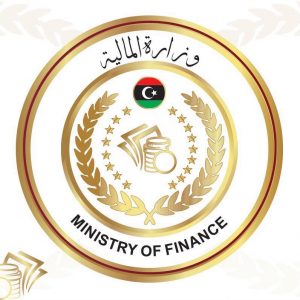By Sami Zaptia.

London, 10 February 2020:
Libya’s Tripoli-based Ministry of Finance will launch a comprehensive radical Public Finance reform programme to benefit all Libya and all Libyans, Finance Minister Faraj Omar (Bumatari), told Libya Herald in an exclusive telephone interview today.
Speaking from Tripoli, Omar said: “Since taking public office a year ago I immediately set about identifying essential areas for improvement, and today we present these solutions in the form of a robust reform program.”
Explaining the reform measures, the Minister confirmed that the many laws enacted just before the 2011 revolution – aimed at reforming the economy – were yet to be activated, and the Public Finance sector has yet to experience any radical reform.
This ambitious new reform programme – announced today and developed to meet international standards in partnership with the World Bank – aims to deliver efficiency, transparency, accountability and good governance.
The reforms will promote public awareness relating to the spending of public money, improving tax and customs revenues to help finance and diversify revenues of the state budget. It will also address maximizing and increasing other sources of revenue such as various duties and charges for licenses and passports – to at least cover costs.
Specifically, the reforms will include the development of a chart of account and an integrated IT database to improve financial reporting; an upgraded integrated payroll system to eliminate wastage caused by, for example, inaccurate data and duplication; and will also comprise a comprehensive programme of capacity building among the civil service at the Ministry of Finance.
The Minister said that by tackling inefficiencies within Chapter One (state-sector salaries) of the state budget, he is confident the Ministry can make cost reductions of up to 10 percent within the reform’s first year. That equates to about LD 2.5 billion according to January’s data.
He also highlighted his focus on development within the payroll system, and pointed to saving policies he has already adopted which have led to a saving of about LD 1.5 billion in 2019 alone.
The Minister will also look to improve the infrastructure in the tax and custom systems, aimed not only at generating more revenue to the government but also improving transparency and reducing fraud.
On achieving a just and efficient return on state revenues for the Libyan public, the Minister said that in 2010 there were around 700,000 state‐sector employees which had risen to around two million by 2019 – in a country of only 7.6 million. The Minister also confirmed that his Ministry is working on programmes to link the ministry with the Civil Registry Authority (CRA) and all government entities that are funded from the government budget in order to harmonize the identification process and avoid duplication of salaries.
This is an ambitious and complex programme and the first positive step in a long-term journey, however, it is one that the Minister believes is long overdue. The Ministry is working with both international consultants such as the World Bank and locally with Libya’s Tatweer Research in order to administer and implement the reforms.
The Ministry is organizing a workshop with the World Bank later in the month to take the programme forward. Today, a workshop was held in Tripoli on just and fair state‐sector salaries.
https://www.libyaherald.com/2020/02/03/tax-contribution-to-state-budget-increasing-ministry-of-finance/
https://www.libyaherald.com/2020/01/15/libyas-total-2019-state-revenues-up-on-budget-estimates/
https://www.libyaherald.com/2019/10/12/tripolis-finance-ministry-discusses-developing-e-payments-systems/
https://www.libyaherald.com/2019/09/06/tax-system-reform-forum-makes-11-main-recommendations/
https://www.libyaherald.com/2018/09/13/libyas-economic-reforms-a-tax-levy-on-foreign-currency-sales-increased-currency-allowances/







